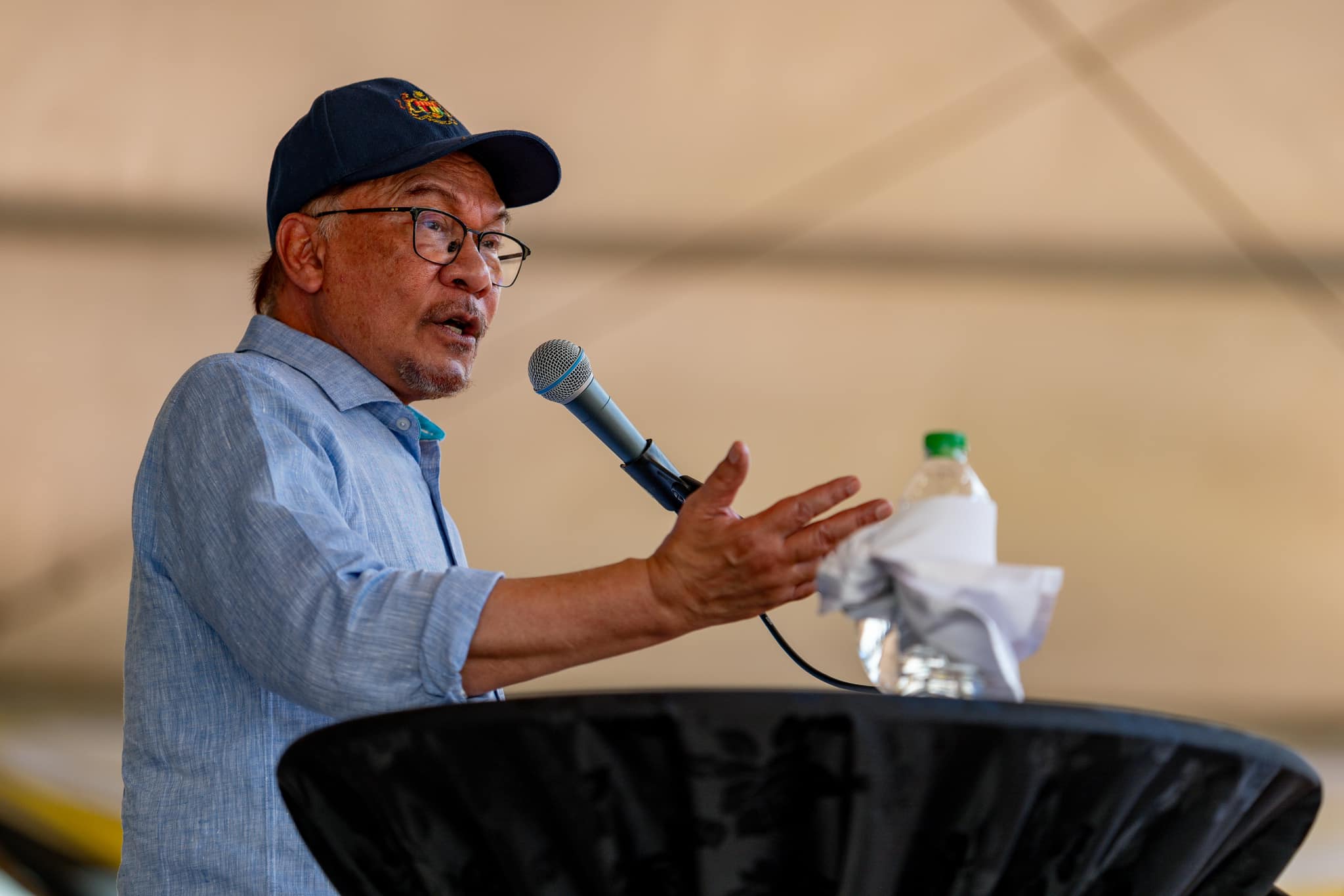KUALA LUMPUR, Oct 2 – Anwar Ibrahim has made a radical proposal to end universally subsidised health care in Malaysia, indicating that the government may include health care in a subsidy rationalisation exercise.
The prime minister suggested that besides removing fuel subsidies from the wealthy, such as the top 10 per cent (T10) of income earners, the government should also no longer subsidise health care for the richest.
“For example, in hospitals, the fees for treatment in government hospitals are so low. For the poor, there is now the Madani [Medical Scheme] and also free treatment [in public health care facilities], but the rich also get the same,” Anwar said in a speech at the national-level launch of the Madani Medical Scheme and the Madani Afiat programme in Ipoh, Perak, yesterday.
“Is it wrong if the government were to say – we retain and improve health care, so that it’s better for all citizens – but for the wealthiest (kalangan yang paling kaya di atas), we impose higher charges. Agree or not?”
The audience was silent.
While Anwar was criticising fuel subsidies and subsidies by Tabung Haji for the haj pilgrimage, the prime minister noted that such universal subsidies were provided to the “rich” who earn RM40,000 or a million ringgit a month, or those who drive luxury cars like Rolls Royce and Mercedes Benz.
If the Anwar administration does go ahead with making the T10 or the “rich” pay the actual cost of health care in Ministry of Health (MOH) facilities – however that subsidy rationalisation exercise is operationalised – it is unclear how much savings the government can actually generate, as the “wealthiest” are more likely to go to private health care facilities since they have medical insurance.
The Anwar administration is planning to implement a targeted fuel subsidy programme early next year, underpinned by the government’s Central Database System (Padu) that takes into account indicators, beyond incomes, such as the number of household members, dependent children according to education levels, number of vehicles, and government assistance received to help determine the disposable income of each household.
Currently, there is already differential charging in MOH facilities, i.e. based on whether patients were referred from private clinics or hospitals. The Fees Act 1982 imposes the highest fees, or first class rates, on patients who are referred to MOH hospitals from private and university hospitals, including for hospitalisation and medicine, even if they want cheaper third class treatment.
However, cancer patients have long called for the withdrawal of the Fees (Medical) (Amendment) Order 2017, pointing out that even low-income earners opt to get diagnosed or do their first surgery in a private hospital – to avoid months-long wait in a government hospital – before they switch to the public sector for cheaper follow-up treatment.
The government subsidises about 98 per cent of the treatment cost for citizens at public health care facilities, specifically MOH facilities. Teaching hospitals run by public universities generally impose higher charges for treatment and provide advanced therapies, such as for cancer, that are unavailable in MOH hospitals, but are still much cheaper than private hospitals.
Anwar also suggested eliminating sugar subsidies to reduce diabetes in the country. According to the National Health and Morbidity Survey (NHMS) 2019, about one in five adults aged 18 and above suffer from diabetes, or an estimated 3.9 million people.
“If we were to introduce a system – [price] goes up a bit so that we reduce our sugar consumption – and we get, say, an extra RM500 million, the government won’t take that RM500 million but will allocate it instead for health projects for diabetes treatment.
“So our parents and our relatives with diabetes, who need insulin, can be helped with this money. That is our approach.”
Unlike the prime minister’s proposal to remove health care subsidies from the rich, his suggestion to scrap sugar subsidies received claps from the audience.
Anwar did not make any mention of social health insurance in his speech, even though the MOH is currently exploring different models in other countries like Singapore, South Korea, Taiwan, and Thailand, according to Health Minister Dr Zaliha Mustafa’s special advisor, Dr Kelvin Yii.
The Bandar Kuching MP also said he did not believe in raising the RM1 user fee for outpatient care in MOH facilities, noting that increasing it to RM5, for example, would likely not make a difference.
Yesterday, Anwar acknowledged “extraordinary” congestion in public hospitals, saying: “Many people criticise us, saying that since we formed the government and I became prime minister, hospitals have become congested.
“Hospitals have been congested for years, but because actions then were not quick and allocations were insufficient, the problem became even more complex today.”
The prime minister said that the upcoming Budget 2024, scheduled to be tabled this month, will prioritise health care facilities, like clinics and hospitals.
The overcrowding of public hospitals, particularly in emergency departments, was exacerbated by the Covid-19 pandemic that resulted in delayed care for non-Covid cases for three years and triggered resignations from exhausted health care workers.
Last year, 1,354 contract medical officers quit, exceeding the number of resignations in the two previous years combined. Within five years, the number of contract doctors who quit the public health service rose a whopping 1,131 per cent, from 110 resignations in 2017 to 1,354 in 2022. Last year was the first time doctor resignations reached four figures.
The MOH’s nationwide relocation exercise of more than 4,000 medical officers for permanent appointments last July 31 also worsened staff shortages in certain public hospitals, particularly in the Klang Valley, such as Selayang Hospital’s emergency department that has led to an increase in the abuse of doctors from patients’ accompanying relatives.








